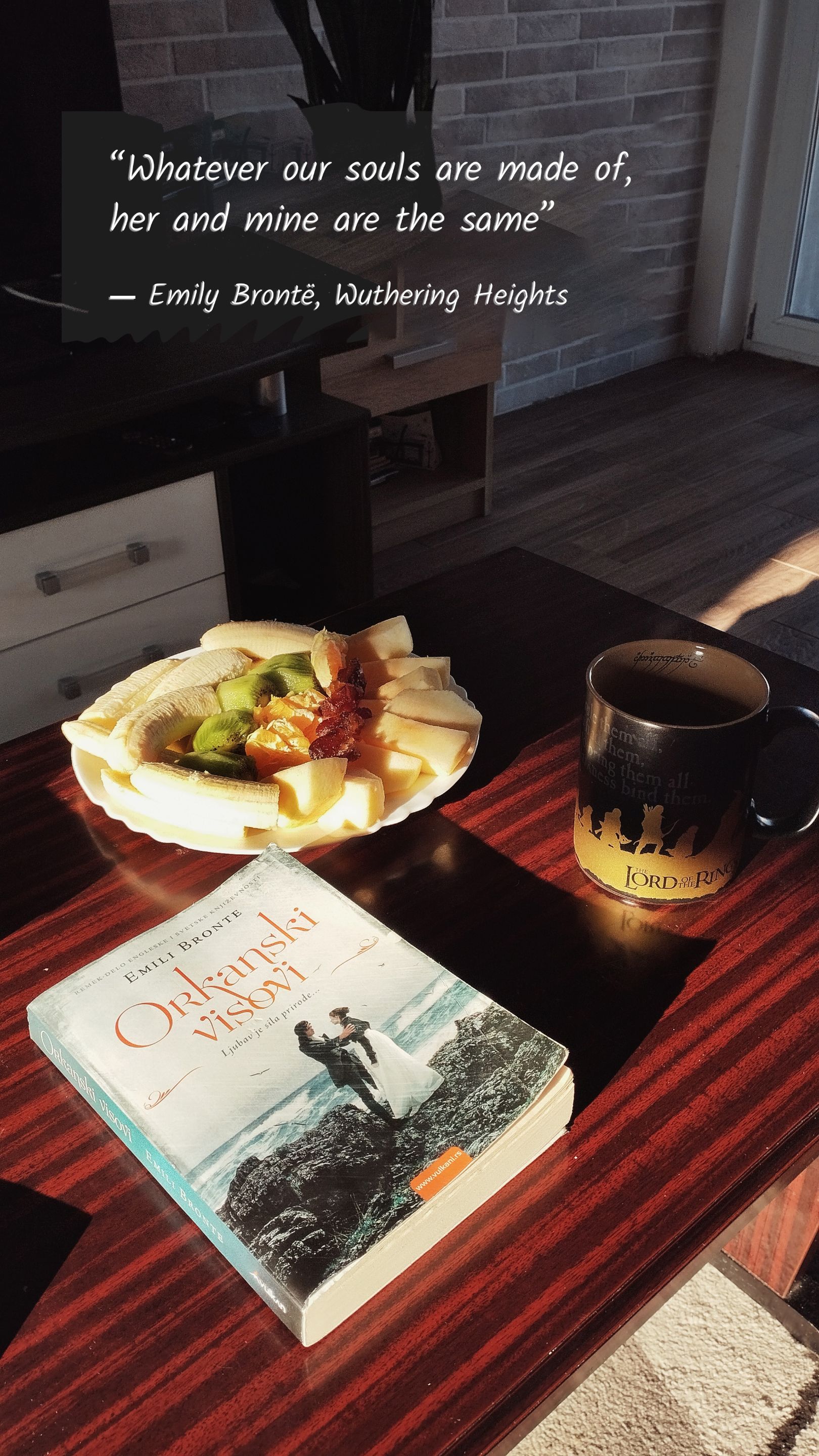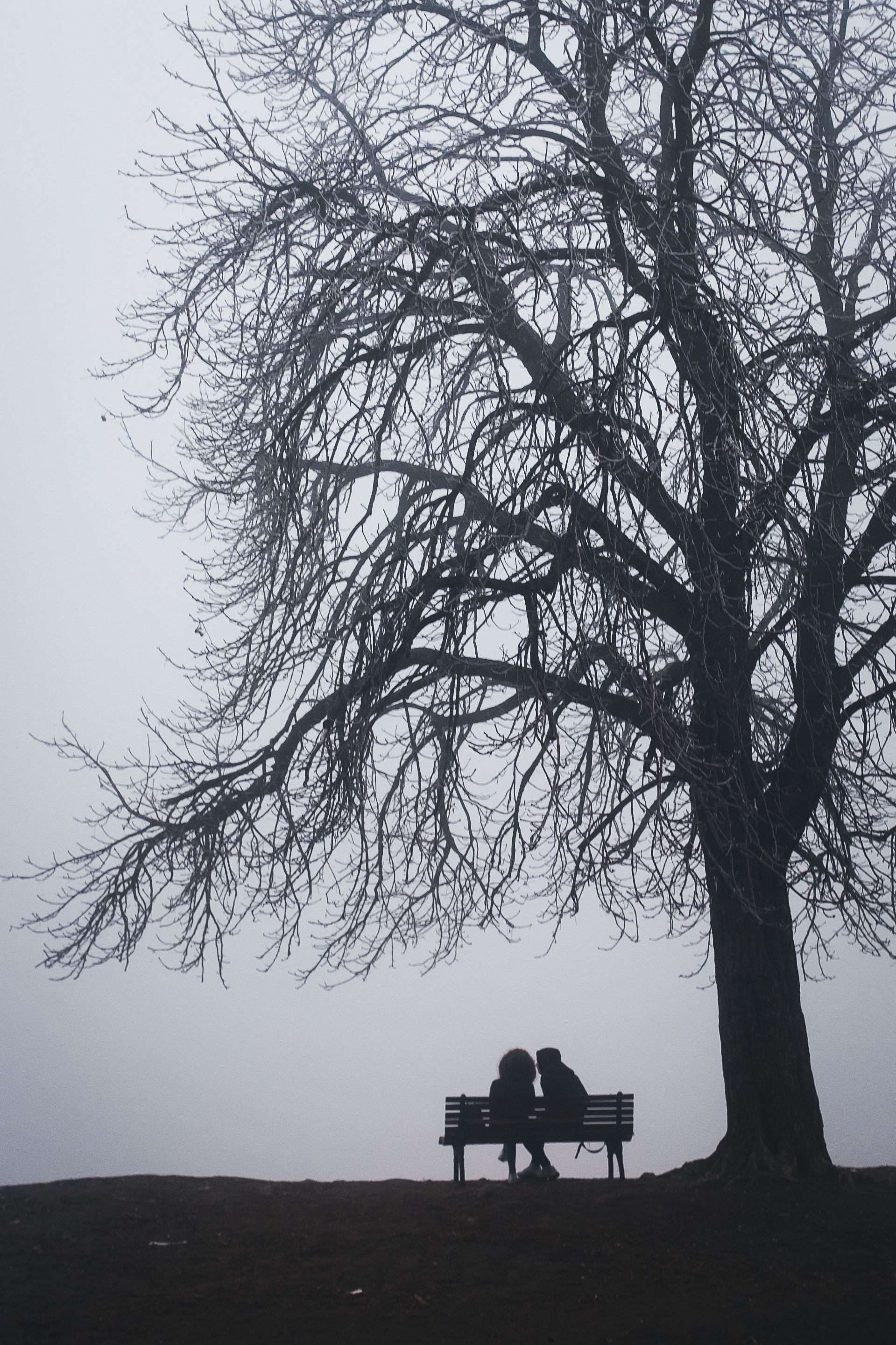Diving into the Abyss of Wuthering Heights | Book Review
hive-180164·@alcibiades·
0.000 HBDDiving into the Abyss of Wuthering Heights | Book Review
Wuthering Heights is not just a love tale but much more an exploration of the dark and buried aspects of human nature. If you come to it with a certain, misguided expectations, it will be that much harder to accept it for what it is. It seems that people are divided into three camps when it comes to their stance on this book: - Those who hate it passionately from the depths of their soul. - Those who adore it. - Those in a love-hate relationship with it. I find myself mostly in the latter. This is a story of obsession that becomes so strong it grips the characters and clouds their minds, imprisoning them in a state of everlasting despair. If love turns into all-consuming obsession, was it love in the first place? Or an unhealthy attachment that stems from childhood traumas, a desire to defy families, vanity... Cathy is a spoiled lady who is used to always having her way and she stops at nothing to reach her goal and Heathcliff is someone who was abused and ridiculed throughout his childhood - he accepted it stoically, but built in his mind the overwhelming need for utter revenge. They were the product of their environment, both diabolical in nature and so they connect on a soul level, but there was not enough sanity between them to fight through the challenges that followed - instead they evoke the worst in them. <blockquote><i>“He's more myself than I am. Whatever our souls are made of, his and mine are the same.”</i></blockquote> <div class="pull-left">  </div> <div class="pull-left">  </div> *** I must give credit to Emily for creating such a demonic character that was hard to sympathize with even though it was tragic. It's incredible, the powerful aura emanating from him could be felt outside of the papers of the book. My blood was boiling, and in moments of fury, I found myself daydreaming about tearing and throwing the book. It stirred emotions akin to hatred that I thought were long gone. It kept me reading long at night, in the hopes of some positive character development, someone gathering the courage to resist, and others facing conscience and justice. Alas, no personal growth; everyone remains steadfast in their foolish stubbornness. Since I expected a love story, I was unsure what would unfold in the second half of the book, but it turned out to be more interesting. No character was entirely positive, and no matter how hard I tried to root for some of them, they continually irked me with their foolishness, arrogance, naivety, chasing after bad-boy types, and timidity... The only glimmer of hope is the young couple at the end who somewhat rose above the madness of the place and started turning things in a positive direction. This completely changed my overall impression of the book because I could finally breathe a sigh of relief. Cathy 2 and Hareton had enough positive qualities to soften me at least a bit. The housemaid narrating the story, while seemingly a kind woman, too often allowed situations to spiral out of control, putting the lives of those she cared for in jeopardy. She is not as innocent as she presents herself in the story. I like having at least one character who is noble and for whom I can cheer, so I often found myself in agony here. If her intention was to portray what happens when we succumb to blinding, toxic obsession and a desire for revenge—that leads to complete moral degradation and a living hell, like Dorian Gray—then Emily certainly succeeded. Characters, under the guise of love, commit terrible deeds. Their actions speak louder than words. <blockquote><i>"He began to pace the room, muttering terrible things to himself, till I was inclined to believe, as he said Joseph did, that conscience had turned his heart to an earthly hell."</blockquote> More than anything, I appreciate the setting—the descriptions of the houses and landscapes,, moors, winds and darkness—the gothic nature of the place. Although more time could have been spent on it, Emily likely wanted the focus to be on the two accursed houses where the characters were imprisoned. It's a grey, dystopian place where depression is an everyday occurrence, isolated, governed by different laws, and two families tragically entwined. Emily Brontë's writing stands out for its ability to evoke powerful emotions, create a haunting atmosphere, and explore complex characters and relationships. The use of multiple narrators and an unpredictable narrative structure adds depth to the storytelling. The novel's enduring appeal is, in no small part, due to the masterful way with which Brontë crafted her story. The young author boldly delved into creating morally ambiguous characters and antiheroes that still stand out in the literary world, writing such a novel that was unthinkable at the time. It's so depressing that I'm not surprised she didn't live long after. A book so unique in its horror and awfulness." <b>4.25/5 stars</b>
👍 awesome-gadgets, abandi, best-strategy, natur-pur, johannpiber, apix, steem-fund, online-24-7, coin-doubler, executive-board, alphacore, artmentor, voodooranger, im-yanizet, fulltimegeek, cornerstone, choogirl, geekgirl, bgmoha, literal, lauralauze, gerber, ezzy, exyle, deathwing, steem.leo, mice-k, dcityrewards, someguy123, bestboom, dlike, bobby.madagascar, daan, felander, emrebeyler, unconditionalove, cakemonster, samsemilia7, triplea.bot, therealyme, ribary, dpend.active, sketching, dcrops, hykss.leo, ambiguity, freedomring, theluvbug, hoffmeister84, ethangel, esther-emmanuel, rubencress, tryskele, discovery-it, smartvote, spiceboyz, aboutcoolscience, popurri, mad-runner, sbarandelli, phage93, cooltivar, middleearth, lallo, victoriaxl, discovery-blog, kkartdesign, farmingtales, franvenezuela, crimsonowl-art, yzamazing, gianluccio, ciuoto, carolineschell, marcolino76, alequandro, vittoriozuccala, spaghettiscience, armandosodano, jessica.steem, adinapoli, titti, stregamorgana, tinyhousecryptos, omodei, capitanonema, damaskinus, marcellasunset, hjmarseille, ghastlygames, peterpanpan, joseq1570, jilt, bindalove, maridmc, jrjaime, tonmarinduque, cryptogillone, ettore-san, lyamalfonzo23, pinkchic, r4f4, ralbe, robertonis, piumadoro, nattybongo, coccodema, juanbg, samuel.steem, meeplecomposer, maruskina, riccc96, jennyzer, matteus57, krrizjos18, darthgexe, jlsplatts, denisda, paulmoon410, mmoonn, peakecoin, doodle.danga, kharrazi, liverpool-fan, simgirl, kork75, blumela, quiubi, andre.btc, cooperfelix, lorenzopistolesi, builderofcastles, ewkaw, joseluis91, iskawrites, andreamtovar19, fermentedphil, martthesquire, slobberchops, mipiano, cabelindsay, sparker005, hive-180658, netlyn19, presidentx, borislavzlatanov, insaneworks, noemilunastorta, tomhall, shanibeer, worksinsane, curangel, justinw, roelandp, bryan-imhoff, diabolika, grocko, lenasveganliving, rocky1, drax, lemony-cricket, javalord, elmundodexao, cmplxty, thevil, laruche, rima11, sabajfa, pharesim, keuudeip, qsounds, felt.buzz, bertrayo, epicdice, hive-world, traderhive, drivingindevon, bemier, shaka, erikaflynn, auleo, iamevilradio, warpedpoetic, azircon, greddyforce, fotogruppemunich, gerdtrudroepke, anttn, nsfw-power, thelittlebank, milky-concrete, certain, ssiena, robvector, josdelmi, blingit, prosocialise, justbekindtoday, cherryng, actioncats, meritocracy, maurojd, gikitiki, sunshine, sergiomendes, walterjay, sustainablyyours, dandesign86, gentleshaid, sco, louis88, tijntje, coloneljethro, dawnoner, pimpstudio-cash, sarashew, jessicaossom, lukasbachofner, jijisaurart, remotehorst23, monster-one, altleft, coinomite, callmesmile, hive-189277, ambicrypto, scraptrader, stemng, doctor-cog-diss, wongi, quduus1, samest, kingabesh, the.chiomz, cyprianj, temitayo-pelumi, nazom, acgalarza, saboin, koenau, voxmortis, ykretz, flewsplash, macoolette, lettinggotech, itwithsm, lxsxl, kenny-crane, bluefinstudios, hivebuzz, lizanomadsoul, crypticat, jnmarteau, steemitboard, arcange, joeyarnoldvn, shainemata, jasonbu, kamilla19, intoy.bugoy, ladysnowhite, ogfox,